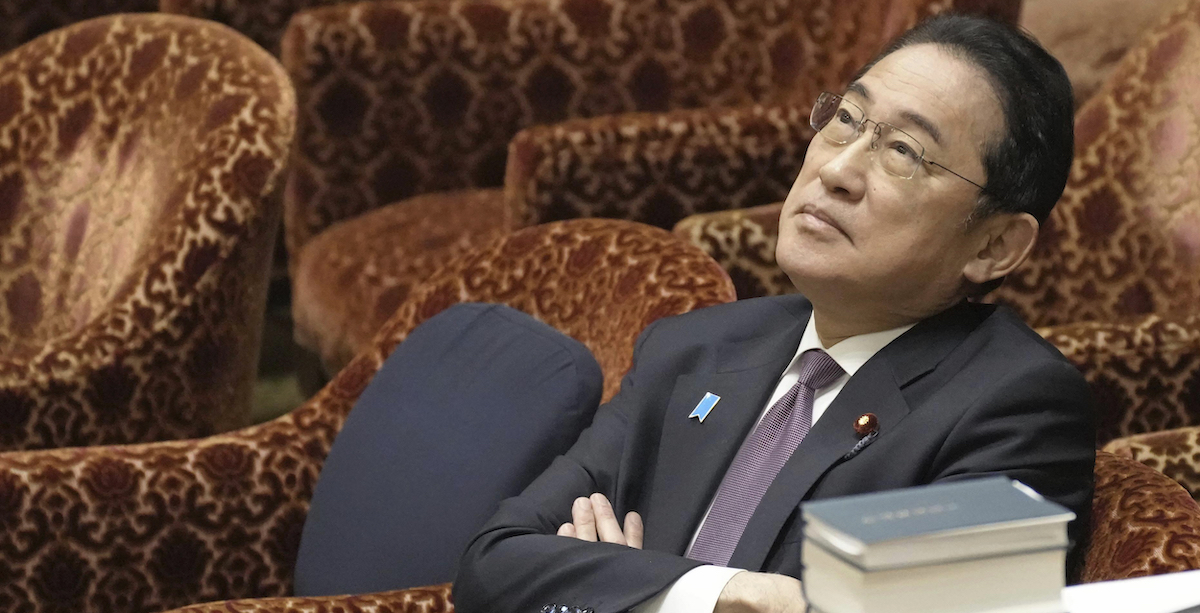For some time now, Japanese Prime Minister Fumio Kishida has been trying to organize a meeting with North Korean dictator Kim Jong Un. This is a rather peculiar fact, because the relations between the two countries are hostile, and due to the fact that the North Korean regime is one of the most isolated in the world: Kim Jong Un has not met a Western leader since the historic meetings with the then American President Donald Trump, between 2018 and 2019. The Japanese Prime Minister, however, has some precise reasons, linked to internal politics and an old issue of kidnappings, for meeting Kim Jong Un.
Kishida had already said a year ago that he was willing to meet Kim Jong Un “without any conditions”. But recent communications have become more intense, so much so that this week Kim Yo Jong, Kim’s sister and close ally within the regime, told North Korean state media that the Japanese government would let the Japanese government know through informal channels. North Korea to be ready for a meeting “as soon as possible”.
That of the Japanese government apparently seems like a strange request: the two countries have generally hostile relations, and have never established official diplomatic relations between them. But Japan has some interests related to North Korea, starting from an old story from decades ago, linked to the kidnapping of some Japanese citizens who were taken to North Korea: most of them did not return, or returned after a long time .
Among other things, there was talk of the possibility of new contacts on Tuesday, the day on which a football match for the World Cup qualifiers between the men’s national teams of the two countries was scheduled. The match was supposed to be held in Pyongyang but the North Korean government he canceled it at the last minute, for reasons that are still unclear. North Korea lost by default.
Japanese interest in meeting the North Korean leader may seem at odds with the general climate of hostility between North Korea and its neighbors, including Japan. The Pyongyang regime has pursued a rapid development of its space and missile capabilities over the past two years, which has greatly worried neighboring countries.
Furthermore, the two countries share a very troubled history, which dates back to the period of Japanese colonial domination on the Korean Peninsula between 1910 and 1945. The hostility of that period continued during the Cold War, when the two countries belonged to opposing camps led respectively from the United States and the Soviet Union.
What makes relations between Japan and North Korea extremely difficult, in addition to the historical past, is the issue of Japanese citizens kidnapped by North Korean agents. In the late 1970s and early 1980s, according to the Japanese government, 17 people were kidnapped and brought to Pyongyang to teach Japanese language and culture to North Korean espionage agents. The North Korean regime itself has admitted to having conducted operations of this kind but maintains that there are no longer any Japanese hostages on its territory: five were freed in 2002, eight are said to have died and four, according to the regime, never entered the country.
If North Korea believes that the issue of the kidnapped Japanese is now closed, Japan has never accepted this version and continues to ask for information. The story, although little known outside Japan, instead raises enormous interest within the country and polls show that there is constant attention from public opinion over the years. In the most recent one, around three-quarters of those interviewed said they considered the issue of the return of citizens kidnapped by North Korea to be important.
Also for this reason, contacts between Japan and North Korea have resumed in recent months. The occasion was the earthquake that struck Japan on New Year’s Day, in which more than 60 people died. Following the earthquake, Kim Jong Un sent a message of solidarity to the Japanese government. This is not a usual thing: to make a comparison, the North Korean regime had not sent messages to Japan even after the catastrophic earthquake of 2011, the one that caused the Fukushima nuclear disaster, in which almost 20 thousand people died.
For this reason, the message sent in January was interpreted as a signal of North Korean willingness to open a dialogue.
Yet the talks, which are evidently taking place through unofficial channels, are not going entirely smoothly. Kim Yo Jong on Tuesday said that Japan must make concrete efforts for “a new beginning” and not remain “obsessed with the past” by clinging to “issues that cannot be resolved.” The reference is probably to the issue of kidnappings, with which Kishida could try to obtain some consensus among Japanese public opinion.
These contacts with North Korea are taking place in a context in which Prime Minister Kishida’s popularity is at an all-time low, close to 25 percent. Given the enormous interest of the Japanese in the issue of kidnappings, Kishida’s intention could be to regain popular support by making progress on this very issue. For the government, however, this is a risky strategy, since engaging in negotiations with an unpredictable regime like the North Korean one is a gamble. Especially since the glimmers of hope seen in recent months have rekindled the hopes of the association of relatives of kidnapping victims: if these hopes were to be publicly dashed, it would be a failure for Kishida’s government.
